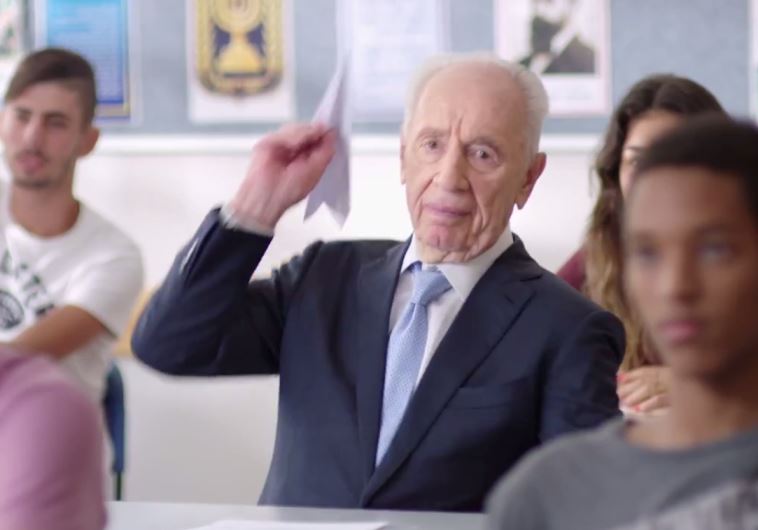Grapevine: Eye for the ladies
The event will be held under the banner of Women Promote Change, and Campbell, who has been a staunch activist for women’s rights.
 Education ministry's new campaign video with Shimon Peres(photo credit: screenshot)Updated:
Education ministry's new campaign video with Shimon Peres(photo credit: screenshot)Updated: